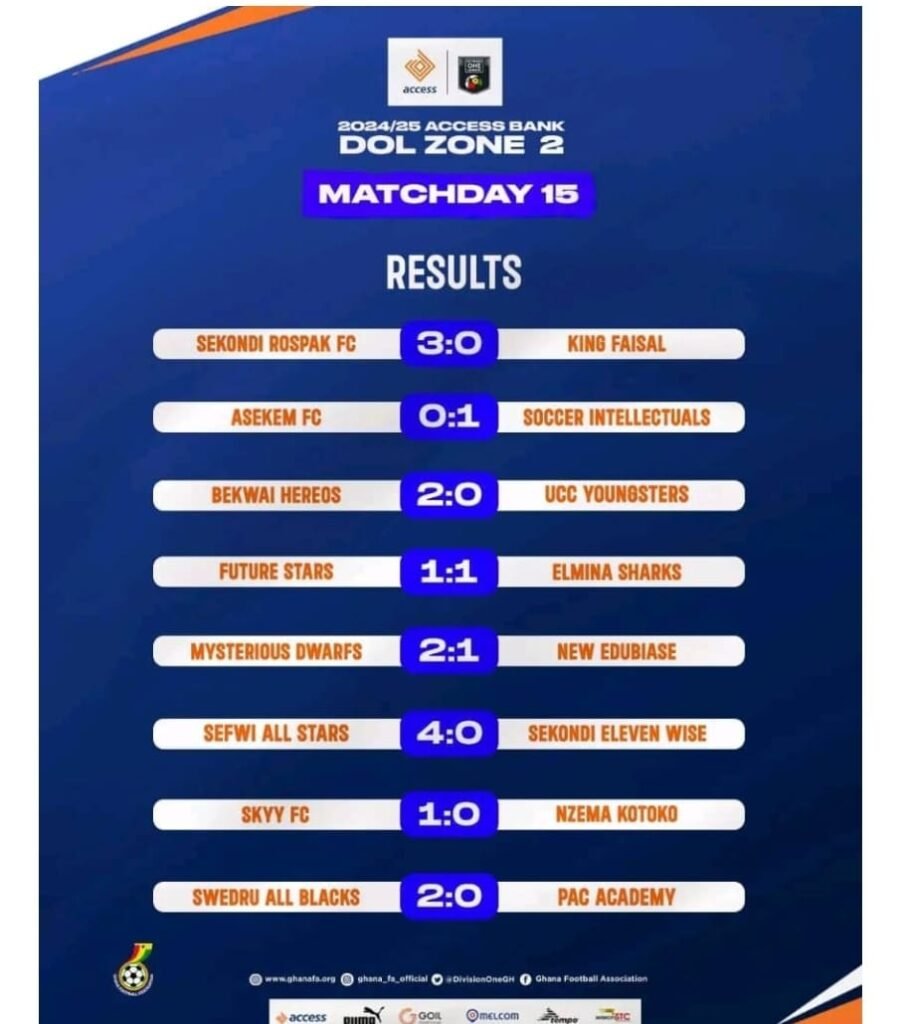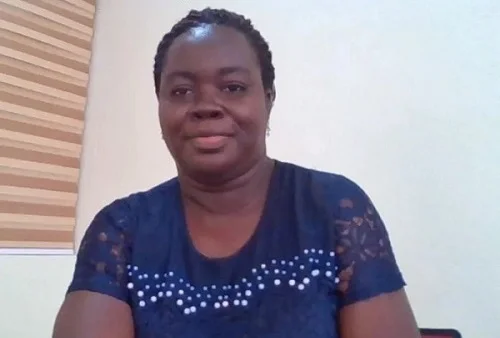Hot!
Kezia Sanie, a global humanitarian figure supporting underprivileged in society

Ms Sanie in a group picture with some of the students
Kezia Asiedua Sanie, a young entrepreneur has set out to create a safe haven for the less privileged in society with the goal of becoming a global humanitarian figure through her charity works.
With a passion for supporting the less privileged, Kezia at age 16 together with her Senior High School (SHS) mates in Wesley Girls started the journey to touch lives.

In 2016, they made their first donation to some needy children in Ashaiman. In the same year, Kezia and friends presented some items to about 100 children in James Town, Accra.
Kezia then formed the ‘For the Future (FTF) Ghana, a charitable organisation dedicated to addressing child poverty and educational inequalities in Ghana. Before completing SHS, Kezia and her friends managed to donate to five different schools.

The 23-year-old has since become a beacon of hope and inspiration within her community and beyond.
Kezia, a law student and advocate for quality education recognises the transformative power of education and the importance of respecting children’s rights.
She believes that every child deserves access to quality learning opportunities and through FTF Ghana, has provided essential support and opened doors of opportunity for over 4,000 underprivileged children.
Ms Sanie also teaches and mentors about 15 children from the slums who have shown massive improvement. That includes a two-year-old Elizabeth Botwe and young Prince Kojo.
Her innovative and holistic approach to addressing the challenges faced by these children has garnered widespread global recognition and support.
Ms Sanie is a trustee for the Duke of Edinburgh’s International Award known in Ghana as The Head of State Award Scheme which empowers young people to explore their full potential and find true purpose, passion and place in the world, regardless of their location or circumstance. She is the youngest member on the board.

She is also a member of the Global Shapers Community of the World Economic Forum and a sought-after speaker at events and schools, where she shares her experiences, inspire others, and encourage them to take action.
Through other initiatives spearheaded by Ms Sanie, including Click4Change, EmpowerHer Period and others, she had impacted over 5,000 children in education and livelihood support.
She received some recognitions for her work including the Female Entrepreneur of the Year 2020 by the Young Achiever’s Awards and the Pan African Community Influencer of the Year 2022 by Pulse Africa.

In 2023, Ms Sanie was named a Top 10 finalist by the Chegg.org Global Student Prize and a Top Five finalist for the .ORG Impact Awards Rising Star Category by Public Interest Registry. She also won the Agent of Change award by Women’s Choice Africa and the Unsung Hero of the Year award at the Federation of African Law Students (FALAS) Annual Conference and Dinner in Kigali, Rwanda.
Ms Sanie’s story is a testament to the transformative power of one person’s dedication and vision. Through her work, she has become a driving force for change, inspiring over 500 other young people to join in the pursuit of a more inclusive and equitable society where every child can thrive.

Ms Sanie believes that every child has a unique gift and only requires support to unearth and polish it for the good of the society, hence positioning herself to support thousands of children around the world.
Ms Sanie is looking forward to building a resource centre that would assist children across Africa and beyond and provide them an enabling environment to unearth their talents and grow.
She loves listening to gospel music, reading and visiting the beach when she is not engaged in charity works.
By Michael D. Abayateye
Hot!
Swedru All Blacks back to winning ways, Roshan humble King Faisal

Sekondi Rospak FC made it eight wins in eight successive home games after three second-half goals from John Amoah, Joseph Ntow and Stephen Anthony Kofi. John Amoah opened the scoring in the 55th minute after a barren first half. Joseph Ntow added to the tally in the 56th minute before Stephen Anthony Kofi rounded things up in the 74th minute to give Rospak a 3-0 win over former Premier League side King Faisal.
Elsewhere at Swedru – leaders Swedru All Blacks humbled PAC Academy in an emphatic 2-0 win. Zayat Bubakari scored first for Swedru All Blacks in the 27th minute before Rudolf Junior Nana Kwasi Mensah made it 2-0 in the 34th minute. Swedru All Blacks are top of the table with 36 points – 4 points ahead of second placed Rospak FC.
Meanwhile, Former Premier League side Cape Coast Mysterious Dwarfs recorded their fourth successive home victory after beaten New Edubiase United 2-1 at the Robert Mensah Park. Enoch Odoom struck first for Cape Coast Mysterious Dwarfs in the 19th minute but Steven Asante equalized for New Edubiase United before halftime. After the interval, Godfred Eshun scored from distance in the 65th minute to help Cape Coast Mysterious Dwarfs secure all the points.
Here are the results in Zone Two

Hot!
Cervical Cancer alert: Avoid sex at early age

The Programmes Manager of Non-Communicable Diseases (NCDs) of the Ghana Health Service (GHS), Dr Mary Efua Commeh, has advised young girls to avoid sex at an early age.
This, she explained, will give the cervix the opportunity to mature before they become sexually active.
“You need to delay what we call the first sexual intercourse as much as possible to give the cervix the opportunity to mature before the person becomes sexually active,” she said.
Dr Commeh stated this in an interview with The Spectator in Accra on Tuesday as a part of the Cervical Cancer awareness month.
According to her, cervical cancer was the second leading female cancer in Ghana with a total of about 3,072 cases annually, and out of that, 1,815 deaths are recorded, representing more than 50 per cent.
She indicated that “If young girls are going to be sexually active, then you need to talk to your parents about being vaccinated.”
She explained that vaccinating young girls against human papillomavirus (HPV) has been found to be a very effective way of preventing cervical cancer.
“There are countries that started HPV vaccination years ago and they are not seeing any cervical cancers now because they would have eliminated most of the high-risk HPVs in their women. So if the high-risk HPV is not there, then obviously the results on cervical cancers are going to go down,” she added.
Dr Commmey said the HPV vaccination is recommended for young girls aged nine to 14 years, adding that it had been found to be highly effective, not just for cervical cancers but for other HPV-related cancers, such as anal cancers, cancers of the vagina, genital warts, amongst others.
She further elaborated that the idea is to put up a barrier before the HPV comes in and that once a young female encounters it, she is already protected.
She also mentioned that for cervical cancers, the main cause is called HPV infection, saying generally, all sexually active women acquire HPV at some point in their lives.
However, the Programmes Manager of NCDs at the GHS mentioned that the body has a way of clearing the HPV, explaining that it is a natural mechanism that goes on, unfortunately, there are a few women whose HPV persists.
Moreover, she noted that the numbers for Cervical Cancer tend to be much higher because at times, clients would wait, and try all sorts of medications before they finally report to the health facility saying “we actually lose some women before they get to the hospitals with over 75 per cent of the cases coming in its third and fourth stages.”
Dr Commey, therefore, called for public awareness while ensuring the availability of information for prevention and control.
By Jemima Esinam Kuatsinu







